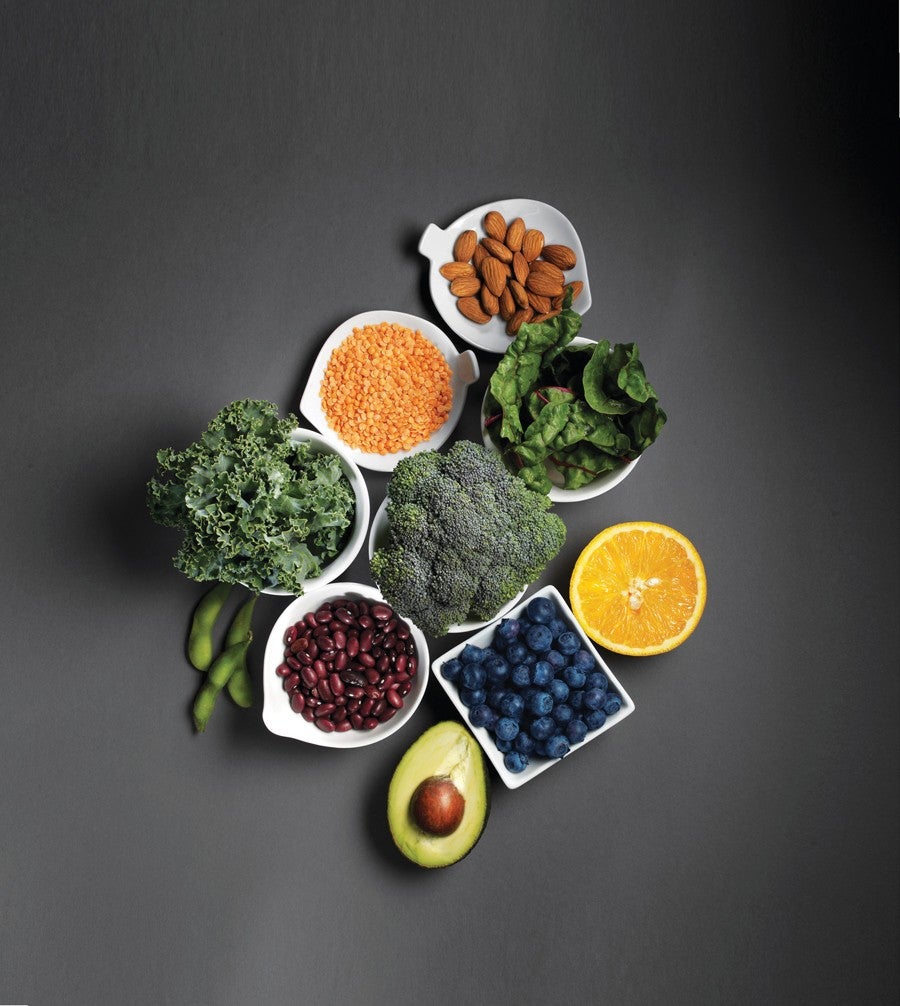Eat to Beat Breast Cancer

Q: How can I eat to protect myself against breast cancer?
A: Foods can help in two ways: First, a healthful diet can help prevent cancer. Second, for women already diagnosed with cancer, smart food choices can improve their chances of survival.
The first inklings that food might play a role in breast cancer came from the observation that breast cancer is rare in countries where diets are mainly plant-based. In Japan, for example, where the traditional dietary staple is rice, breast cancer is rarer than in Western countries. The difference is not due to geneticsat least not for the most partbecause as people migrate from Asia to the U.S., the breast cancer risk for their children and grandchildren matches that of other Americans.
Part of the difference relates to the fact that Japanese women are often thinner than Americans. Body fat produces estrogensfemale sex hormones that are linked to breast cancer. Many studies, including two very large ones, have shown that women with less body fat are less likely to develop postmenopausal breast cancer, compared with heavier women.
However, avoiding being overweight is not the only issue in cancer prevention. Here are four more steps that may help reduce risk:
Limit alcohol. A woman who has even one drink per dayif it’s every dayhas about a 10 percent higher risk of breast cancer, compared with women who avoid alcohol. The reason may relate to alcohol’s tendency to disrupt the action of folic acid, a B vitamin with anticancer properties. It pays to keep alcohol use modest and intermittent.
Avoid meat, especially red meat. Women who generally avoid red meat have a lower risk of breast cancer, compared with those who include it in their daily diet. It is not yet clear whether the problem with meat is the carcinogens that form as it is cooked or the effect of meat-eating on the hormones in a woman’s body.
Avoid fatty foods. Studies have been mixed about whether the amount of fat in your diet affects your breast cancer risk. Some researchers have suggested that what matters is the type of fat you eat. Saturated fat, the kind found especially in meat, is linked to higher risk.
Bring on the fruits, vegetables, and legumes. Vegetables and beans are rich in folic acid. The fiber in fruits and vegetables is important too; it helps your body eliminate extra hormones. Here’s how: As your liver filters your blood, it removes excess estrogens, sending them into your intestinal tract. There, fiber carries these hormones out with the wastes. If you do not have enough fiber in your diet, estrogens pass from your intestinal tract back into your bloodstream.
Q: How much fiber is enough?
A: The National Academy of Sciences recommends that young women get at least 25 grams of fiber daily and that young men get at least 38 grams, with slightly lower recommendations for older adults. However, many authoritiesme includedsuggest slightly more, around 40 grams per day for all adults. To help you picture what that means, a 1/2-cup serving of beans has 7 grams of fiber, a slice of whole-wheat bread has 3 grams, and a typical piece of fruit has about 3 grams.
Q: Are there any specific foods that are known to protect against breast cancer?
A: Two deserve mention: First, girls who consume about 3 ounces of tofu or 1 cup of soymilk daily during puberty have about 30 percent less risk of breast cancer as adults. Whether soy products are safe for women who have been diagnosed with breast cancer is not clear, although most evidence so far is reassuring.
Second, mushrooms may reduce breast cancer risk. An examination of the diets of several thousand Chinese women suggested that those who ate at least 10 grams of fresh mushrooms (the weight of one small button mushroom) daily had a 64 percent reduced risk.
Q: What about nutrition for women who already have been diagnosed with breast cancer? Can diet changes help?
A: Yes. Trimming excess weight improves survival. Avoiding fatty foods helps too. In the Women’s Intervention Nutrition Study, including 2,437 postmenopausal women previously treated for breast cancer, a low-fat diet reduced recurrence risk by about 25 percent.
A combination of a healthful diet and physical activity seems to be particularly important, as was shown in the Women’s Healthy Eating and Living Study, which included 3,088 women previously diagnosed with breast cancer. Women who had at least five servings of fruits and vegetables each day and averaged 30 minutes of walking 6 days per week had roughly half the risk of dying from breast cancer, compared with women who ate fewer vegetables and fruits or who were less active.
So a healthful plant-based diet helps in many ways. It makes weight control easier, helps you avoid unhealthful fats, and keeps fruits and vegetables front and center. This combination, along with regular exercise, helps prevent cancer and also reduces the risk of recurrence.